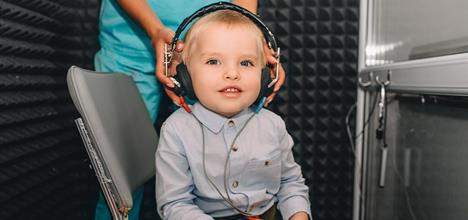
UK toddler born deaf hears for the first time in groundbreaking gene therapy trial.
Opal Sandy, an 18-month-old toddler from Oxfordshire, England, has recently made history by being the initial patient to undergo a revolutionary gene therapy trial for auditory neuropathy, a rare genetic disorder that leads to deafness. Opal’s transformation from complete deafness to recognizing her parents’ voices and speaking her first words has garnered worldwide attention.
Opal was born deaf due to a mutation in the OTOF gene, which hinders nerve signals crucial for transmitting sounds to the brain. She was the pioneer in the CHORD trial, a global project designed to investigate the effectiveness of gene therapy in restoring hearing for children with auditory neuropathy.
Opal’s mother, Jo Sandy, expressed her delight by stating, “When Opal could hear us clapping without any assistance, it was truly remarkable – we were overjoyed when the medical team confirmed after 24 weeks that her hearing was also detecting softer sounds and speech. The term ‘near normal’ hearing was used, and everyone was thrilled with the incredible outcomes achieved.”
What does the treatment entail?
Conducted at Addenbrooke’s Hospital in Cambridge, the trial involved introducing a harmless virus carrying a functional OTOF gene copy into Opal’s right ear, as per the NHS website.
“These outcomes are exceptional and have exceeded my expectations. Gene therapy has long been seen as the future in otology and audiology, and I am thrilled that it has now become a reality. This marks the beginning of a new era for gene therapies targeting inner ear issues and various forms of hearing loss,” stated Professor Manohar Bance, an ear surgeon at Cambridge University Hospitals NHS Foundation Trust and the trial’s lead investigator.
Opal is the first patient worldwide to undergo this therapy and is “the youngest globally to have received it so far, as far as we are aware,” Bance mentioned.
Bance further explained, “We have a limited window to intervene due to the rapid pace of brain development at this age. Delayed diagnoses can also lead to confusion for families due to the numerous potential causes of deafness.”
